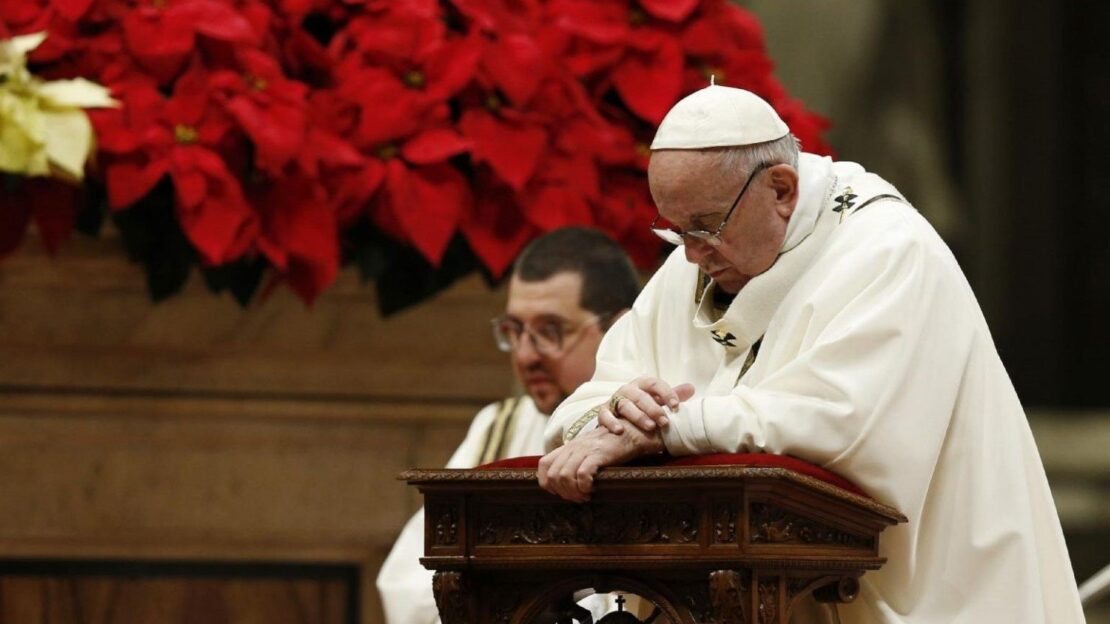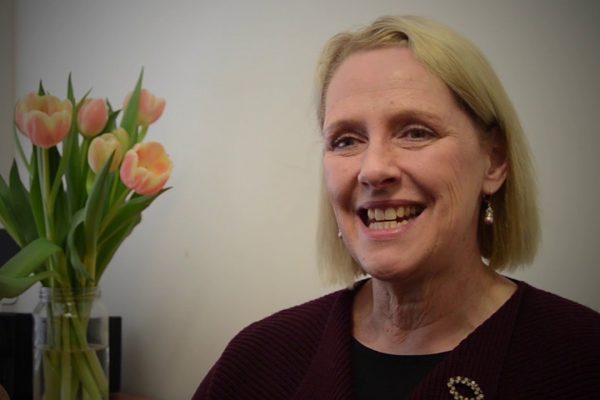This Sunday we hear Baruch’s prophecy for Jerusalem in exile: “The name God gives you for ever will be, ‘Peace through integrity and honour through devotedness.'” In the first article in this series, we considered the situation of the contemporary world and its need of an integral vision of the world as our common home. Baruch’s inspiration reappears in Pope Francis’s appeal for a conversion to justice in the Encyclical Letters On Fraternity and Social Friendship (2020) and On Care for our Common Home (2014).
In chapters two and three of Fraternity, the Pope considers signs of hope. The figure of the Good Samaritan gives humanity a programme for fraternity. It is possible to envisage an open world, not resulting from an authoritarian levelling, but born of a universal love that promotes persons.
However, in order to respond to our vocation to bring about peace through integrity, we need a clear-eyed view of the current reality of our world.
Chapter four begins with a review of world history since 1945. The stark lesson of two world wars appeared to have been learnt with the emergence of the United Nations as a unifying influence on the political level (paragraph 10). Francis notes that, seventy years later, the global economy imposes a single cultural model while dividing persons and nations. The more powerful economies are affirmed while the identity of the weaker and poorer regions is diminished (paragraph 12). The inability to achieve worldwide an equitable supply and distribution of vaccines against Covid-19 is an instance of this imbalance. Too often, the legitimate regard for human freedom degenerates into individualistic expressions, such as the recourse to almost limitless consumption (paragraph 13). The slogan of one sporting goods empire sums up the situation: ‘Just do it!’
The clearest signs of crisis appear when “persons are no longer seen as a paramount value to be cared for and respected, especially when they are poor and disabled, ‘not yet useful’ – like the unborn, or ‘no longer needed’ – like the elderly” (paragraph 17). Calls to preserve the economy rather than the elderly made their ugly appearance during the first wave of the pandemic in Australia. Yet, the key to a healthy society and economy consists in showing respect for a person and her rights, such that their creativity is unleashed. Personal development flows into the common good (paragraph 22).
Values of solidarity rather than individualism, of respect and promotion rather than exploitation or discarding of our neighbour are the foundation of fraternity and social friendship. The practice of these values overcomes fear of our neighbour and recourse to conflict (paragraphs 22-24). In order to realize our call to fraternity, there is a need not to raise walls (paragraphs 26-27) but to build a culture of encounter with one another, thereby dispelling frustration, isolation and desperation (paragraphs 29-30).
The Covid-19 pandemic has highlighted all these factors (paragraphs 32-36). The continuing plight of migrants has been played out in November on the border of Belarus with Poland (paragraphs 37-41). The crisis is fed by the crisis of communication. There is a deluge of information, impossible to sift for its usefulness because of a scarcity of wisdom (paragraphs 42-50).
In Our Common Home, Francis develops his theme of a conversion to justice in terms of knowledge of the true God. Humanity has grown accustomed to seeing ourselves as the earth’s “Lords and masters, entitled to plunder her at will” (paragraph 2). “We have forgotten that we ourselves are dust of the earth” (Gn 2:7) (paragraph 2). St. Francis of Assisi lived “in simplicity and in wonderful harmony with God, with others, with nature and with himself” (paragraph 10). Simply put, St. Francis locates universal love in God.
Chapter 1 describes the threats to our common home – pollution, waste and a ‘throwaway’ attitude; human impact on climate change, water, loss of biodiversity. God loves our beautiful world so that one can speak of the ‘Gospel of Creation’ (chapter 2), “The earth was here before us and it was given to us” (paragraph 67). Our responsibility for God’s earth involves “respect for the delicate equilibria existing between” creatures (paragraph 68). Each creature speaks to us from the harmony of creation (paragraphs 84-88), yet the message they speak is threatened by “modern anthropocentrism” (paras. 115-123).
In Fraternity paragraph 115, the key to our conversion is spelt out: “Solidarity finds concrete expression in service (which) in great part means ‘caring for vulnerability … (setting) aside their own wishes and desires.'” “We do not serve ideas, we serve people.”
In our service of all creation we love as God loves. Fraternity and social friendship are nurtured not just by ideas but by encounters. In paragraph 114, Francis insists on the essential role of the encounters of family life and school in developing social friendship.
The final reflection will describe how the two Encyclical Letters understand respect, dialogue and the threat of populism.
By Fr Michael McEntee




Comments
Denise Mulcahy
Thank you Fr McEntee, for expressing in a nutshell, so to speak , such wonderful insights into the extract from Baruch. What a different place the world would be if all of us deepened our living and understanding of the importance of all our daily encounters as a means of 'developing social friendship.'
Add Comment